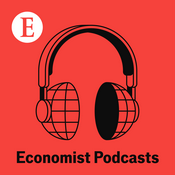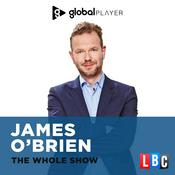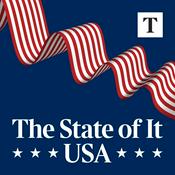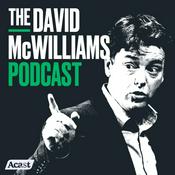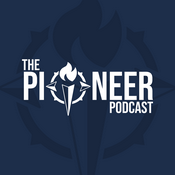53 episodes
- In this episode of Live Players, Samo Buja and Erik Torenberg discuss the pivotal role of hardware in the advancement of AI, the strategic importance of semiconductor manufacturing, and the intricate geopolitical dynamics between the US, China, and Taiwan.
—
📰 Be notified early when Turpentine's drops new publication: https://www.turpentine.co/exclusiveaccess
—
SPONSORS:
☁️More than 41,000 businesses have already upgraded to NetSuite by Oracle, the #1 cloud financial system bringing accounting, financial management, inventory, HR, into ONE proven platform. Download the CFO's Guide to AI and Machine learning: https://netsuite.com/102
—
LINKS:
Bismarck Analysis: https://brief.bismarckanalysis.com/
—
X / TWITTER:
@samoburja
@eriktorenberg
@turpentinemedia
—
HIGHLIGHTS FROM THE EPISODE:
• The thesis is that hardware is crucial to winning the AI race because capital accumulation leads to more data gathering, which has been happening since before AI through platforms like social media, smartphones, and self-driving cars.
• Two critical hardware aspects are data collection platforms (sensors, cameras, mapping) and computational infrastructure (data centers, chips), where proximity to chip manufacturing provides competitive advantages.
• NVIDIA's dominance stems partly from founder Jensen Huang's Taiwanese-American background and personal relationships with TSMC leadership, creating what could be called a "Taiwan lobby" in Silicon Valley.
• Taiwan's economic interests align with mainland China (half their manufacturing is there) while their political interests align with the US, creating strategic tensions.
• Export controls on semiconductors to China came too late and actually incentivized China to develop their full semiconductor stack independently.
• The US should create a special industrial zone near San Francisco with cheap energy, reduced regulations, and government funding to compete with China in chip manufacturing.
• China no longer has cheap labor but rather very skilled, expensive labor, especially in coastal areas where wages can reach $100-200K annually.
• A second-best option for the US would be building semiconductor manufacturing in Texas near existing infrastructure like Starbase.
• The recommended strategy includes targeting allies' semiconductor companies for replacement, implementing talent acquisition programs, and using defense/national security arguments to justify the investment.
• The US should start with purely American-made chips for sensitive government applications (NSA, CIA) as a national security imperative.
• Co-locating chip fabs, data centers, and AI labs would create a powerful feedback loop where 15-minute drives replace 15-hour flights for collaboration.
• On automation, AI will likely automate white-collar knowledge work first since digital activities are easier to train on than physical world tasks.
• Automating knowledge work could lead to dangerous political consequences, as displaced white-collar workers might turn to activism and push for protectionist policies.
• There's a risk that AI automation could lead to negative economic growth if it only automates 95% of white-collar work while leaving physical jobs intact.
• The "laptop class" poses more political danger than physical workers because they have better tools for organizing and influencing policy.
• Physical automation will likely require specialized companies for each domain (baristas, waiters, etc.) rather than general-purpose robots, leading to gradual economic growth.
• On immigration, while top talent is desirable, roughly half of crucial industry leadership should be domestic citizens to ensure patriotic alignment with national interests.
• Having homogeneous cultural groups within companies (speaking only Hindi, Mandarin, etc.) can create unfair advantages and isn't true meritocracy.
• Immigration works best with diversity from many countries rather than concentration from single nations. - This week on Live Players, Erik Torenberg and Samo Burja discuss geopolitical and societal complexities of the India-Pakistan conflict, examining the historical context, demographic challenges, military capabilities, and potential outcomes of the ongoing tensions between the two nuclear-armed neighbors.
—
📰 Be notified early when Turpentine's drops new publication: https://www.turpentine.co/exclusiveaccess
—
SPONSORS:
☁️ More than 41,000 businesses have already upgraded to NetSuite by Oracle, the #1 cloud financial system bringing accounting, financial management, inventory, HR, into ONE proven platform. Download the CFO's Guide to AI and Machine learning: https://netsuite.com/102
—
LINKS:
India: Live Players Analysis: https://www.youtube.com/watch?v=8GbsYh2kx7Y
Bismarck Analysis: https://brief.bismarckanalysis.com/
—
X / TWITTER:
@samoburja
@eriktorenberg
@turpentinemedia
—
HIGHLIGHTS FROM THE EPISODE:
• The India-Pakistan conflict is rooted in the partition of British India.
• Both countries have significant military capabilities, including nuclear weapons.
• India's large Muslim population poses internal stability challenges during conflicts.
• Pakistan's military plays a crucial role in maintaining state cohesion.
• The potential for a prolonged war could lead to significant domestic unrest in India.
• China's involvement in the region complicates the geopolitical landscape.
• The conflict is characterized by a cycle of sporadic fighting and ceasefires.
• Misunderstandings about the precariousness of Pakistan's state legitimacy are common.
• An expansionist war for India lacks a clear victory scenario.
• The historical narratives of both countries shape their current political identities. - Erik Torenberg and Samo Burja discuss the potential industrial revolutions in history, particularly in the Roman Empire and Song Dynasty China, their technological advancements, economic factors, and the reasons these revolutions didn't reach full fruition.
—
📰 Be notified early when Turpentine's drops new publication: https://www.turpentine.co/exclusiveaccess
—
SPONSORS:
☁️ More than 41,000 businesses have already upgraded to NetSuite by Oracle, the #1 cloud financial system bringing accounting, financial management, inventory, HR, into ONE proven platform. Download the CFO's Guide to AI and Machine learning: https://netsuite.com/102
—
LINKS:
Las Medulas in Spain: https://whc.unesco.org/en/list/803/
Monte Testaccio in Rome: https://www.historyskills.com/classroom/ancient-history/monte-testaccio/?srsltid=AfmBOoonzF0CVGKjzUFs46kkI9fZ-FVcBTDOMAVs8vtFcxH4iKcNx09f
Bismarck Analysis: https://brief.bismarckanalysis.com/
—
X / TWITTER:
@samoburja
@eriktorenberg
@turpentinemedia
—
HIGHLIGHTS FROM THE EPISODE:
Erik Torenberg and Samo Burja discuss "failed industrial revolutions" throughout history that aren't as widely recognized as the modern Industrial Revolution.
Contrary to the common belief of constant economic progress, human history has shown societies getting richer and then poorer in cycles.
The Roman Empire experienced an industrial revolution different from our modern understanding.
Roman slavery wasn't the reason they didn't industrialize further, as slaves became expensive in later periods.
Water power was extensively utilized by Romans for milling flour, ironworks, sawing wood, and cutting marble at industrial scales.
Romans employed sophisticated engineering, using aqueducts to transport water for power generation in various mechanical applications.
Archaeological evidence reveals hundreds of sites where Romans harnessed water power through complex waterwheel systems.
Romans understood the concept of using heat to generate motion, as demonstrated by Heron of Alexandria's steam engine experiment.
The scale of Roman metal production was so vast it left detectable lead pollution signatures in Greenland ice cores.
Monte Testaccio in Rome, an artificial hill composed entirely of broken pottery fragments, represents industrial-scale production of approximately 53 million amphoras.
Romans mass-produced standardized items including pottery, glassware, statues, and military equipment with interchangeable parts.
The Roman economy featured a sophisticated consumer market with a significant middle class that purchased mass-produced goods.
This era is underappreciated partly because it's concerning that a society on an industrialization trajectory could be interrupted.
Hollywood's portrayal of the era as merely "swords and sandals" fails to capture the advanced mechanical elements that would have appeared almost "steampunk" to modern eyes.
Roman cities like Alexandria were not just centers of taxation but significant production hubs with globalized trade networks.
The Roman Empire might have easily adopted more advanced steam power if they had needed to dig more coal, but their abundant wood and other fuel sources made it unnecessary.
Song Dynasty China in the 12th century represents another advanced technological society that still fell to military challenges despite its innovations.
Large-scale shipping over water appears to be a crucial prerequisite for industrialization in all these historical cases.
Industrial revolutions may plateau when growth of non-technological factors (population, territory) fails to keep pace with technological advancement.
The Hellenistic era (particularly Alexandria) is described as "the birthplace of modern science" and worthy of further discussion. - In this episode of Live Players, Samo Burja and Erik Torenberg discuss the global influence of U.S. politics on Western countries, the persistence of Western civilization as a political unit, the synchronization of political interests via the internet, and the potential for significant right-wing and free speech shifts in Europe given increased American cultural influence.
—
📰 Be notified early when Turpentine's drops new publication: https://www.turpentine.co/exclusiveaccess
🙏 Help shape our show by taking our quick listener survey at https://bit.ly/TurpentinePulse
—
RECOMMENDED PODCASTS:
🎙️ Second Opinion: Join Christina Farr, Ash Zenooz and Luba Greenwood as they bring influential entrepreneurs, experts and investors into the ring for candid conversations at the frontlines of healthcare and digital health every week.
Spotify: https://open.spotify.com/show/0A8NwQE976s32zdBbZw6bv
Apple: https://podcasts.apple.com/us/podcast/second-opinion-with-christina-farr-ash-zenooz-md-luba/id1759267211
YouTube: https://www.youtube.com/@SecondOpinionwithChristinaFarr
—
SPONSORS:
☁️ More than 41,000 businesses have already upgraded to NetSuite by Oracle, the #1 cloud financial system bringing accounting, financial management, inventory, HR, into ONE proven platform. Download the CFO's Guide to AI and Machine learning: https://netsuite.com/102
—
LINKS:
Two buttons meme: https://ih1.redbubble.net/image.2365085899.3351/st,small,507x507-pad,600x600,f8f8f8.jpg
The Clash of Civilizations: https://www.amazon.com/Clash-Civilizations-Remaking-World-Order/dp/1451628978
Bismark Analysis: https://brief.bismarckanalysis.com/
—
X / TWITTER:
@samoburja
@eriktorenberg
@turpentinemedia
—
HIGHLIGHTS FROM THE EPISODE:
Western civilization as a political unit continues to exist.
The U.S. presidency significantly influences global politics.
Cultural synchronization is evident across Western nations.
Free speech is becoming a central issue in Europe.
Political priorities in Europe are increasingly aligned with U.S. interests.
Social media plays a crucial role in shaping political discourse.
The concept of democracy in Europe is evolving.
There is a growing demand for free speech in Europe.
The internet's influence on free speech is undeniable.
Political change in the U.S. impacts global political dynamics. European countries lack true sovereignty due to external influences.
Client states like Canada and Europe have significant sway over US politics.
The introduction of free speech in Europe may lead to a rightward shift in politics.
Political identities in Europe are fluid and subject to change.
There is a growing demand for change in European political priorities.
Sovereignty requires both resource independence and a capable population.
Cultural power is often a reflection of military strength.
Admiration for military power influences cultural perceptions globally.
The US's cultural dominance is tied to its military power and commercialized culture.
The relationship between Europe and America is complex and evolving. - Samo Burja and Erik Torenberg discuss the future of space colonization, touching on the implications of Mars and lunar settlements, the technological advancements driving space exploration, and how multi-planetary life might reshape human cultures, geopolitical dynamics, and economic structures.
—
📰Be notified early when Turpentine's drops new publication: https://www.turpentine.co/exclusiveaccess
🙏Help shape our show by taking our quick listener survey at https://bit.ly/TurpentinePulse
—
RECOMMENDED PODCASTS:
🎙️Check out Modern Relationships, where Erik Torenberg interviews tech power couples and leading thinkers to explore how ambitious people actually make partnerships work. This season's guests include: Delian Asparouhov & Nadia Asparouhova, Kristen Berman & Phil Levin, Rob Henderson, and Liv Boeree & Igor Kurganov.
Apple: https://podcasts.apple.com/us/podcast/id1786227593
Spotify: https://open.spotify.com/show/5hJzs0gDg6lRT6r10mdpVg
YouTube: https://www.youtube.com/@ModernRelationshipsPod
—
SPONSORS:
☁️ More than 41,000 businesses have already upgraded to NetSuite by Oracle, the #1 cloud financial system bringing accounting, financial management, inventory, HR, into ONE proven platform. Download the CFO's Guide to AI and Machine learning: https://netsuite.com/102
—
LINKS:
Starship: https://www.spacex.com/vehicles/starship/
(Pirate Wars) Moon Should Be a State: https://www.piratewires.com/p/moon-should-be-a-state
Artemis: https://www.nasa.gov/feature/artemis/
SLS: https://www.nasa.gov/humans-in-space/space-launch-system/
Boom Supersonic:https://boomsupersonic.com/
Blue Origin: https://www.blueorigin.com/
Referenced Live Players episodes:
The Turbulence of Boeing: Decline and Future Prospects: https://www.youtube.com/watch?v=Q1pmCK6CrK4
The Technology That Can Reshape Nations (Desalination): https://www.youtube.com/watch?v=A_gEHhSXECs
Bismark Analysis: https://brief.bismarckanalysis.com/
—
X / TWITTER:
@samoburja
@eriktorenberg
@turpentinemedia
—
HIGHLIGHTS FROM THE EPISODE:
Human civilization may become multi-planetary in the near future.
Economic barriers to space travel are diminishing, making colonization feasible.
International treaties on space may not hold as nations pursue territorial claims.
The moon's resources could lead to a new space race among nations.
Cultural identity on Mars will evolve differently from Earth due to environmental factors.
Genetic engineering may be necessary for human adaptation to Mars.
Martian societies may develop a sense of pride and distinct identity over generations.
Life on Mars could resemble life on a submarine, fostering strong community bonds.
The relationship between Earth and Martian colonies may mirror historical colonial dynamics.
Martians may view Earthlings as privileged and less resilient. Martian communities will likely be isolated and self-sufficient.
Cultural identity on Mars may evolve independently from Earth.
Terraforming Mars could spark cultural debates among settlers.
Technological advancements will shape the culture of space colonies.
The moon may become an industrially important part of the solar system.
Future Martian society will value hard work and frugality.
Genetic adaptations may occur among humans living on different planets.
The colonization of space could lead to a return of genetic diversity.
AI could play a significant role in the future of space colonization.
The solar system has vast resources that will be explored and utilized.
More News podcasts
Trending News podcasts
About "Live Players" with Samo Burja and Erik Torenberg
See the world through the eyes of society's greatest rule-breakers. The "Live Players" podcast charts the key individuals shaping our future from first principles across multiple domains: business, politics, philanthropy, and broadcasting from the digital town square
Join host Samo Burja and Erik Torenberg as they analyze the mindsets of today's most intriguing business leaders, investors, and innovators through the lens of their bold actions and contrarian worldviews. You'll come away with a deeper understanding of the development of technology, business, political power, culture and more.
If you want more than soundbites and sensationalism, this podcast delivers reasoned reflections on the live players who renew and transform civilization, whether we ask them to or not.
Topics frequently covered: Business titans, political players, and philanthropists like Elon Musk, Sam Altman, Peter Thiel, George Soros, Donald Trump, and more with the power to remake industries, policies, borders, or societal norms.
Live Players is part of the Turpentine podcast network. Learn more: www.turpentine.co
Podcast websiteListen to "Live Players" with Samo Burja and Erik Torenberg, The Birth Keepers | The Guardian Investigates and many other podcasts from around the world with the radio.net app

Get the free radio.net app
- Stations and podcasts to bookmark
- Stream via Wi-Fi or Bluetooth
- Supports Carplay & Android Auto
- Many other app features
Get the free radio.net app
- Stations and podcasts to bookmark
- Stream via Wi-Fi or Bluetooth
- Supports Carplay & Android Auto
- Many other app features


"Live Players" with Samo Burja and Erik Torenberg
Scan code,
download the app,
start listening.
download the app,
start listening.




